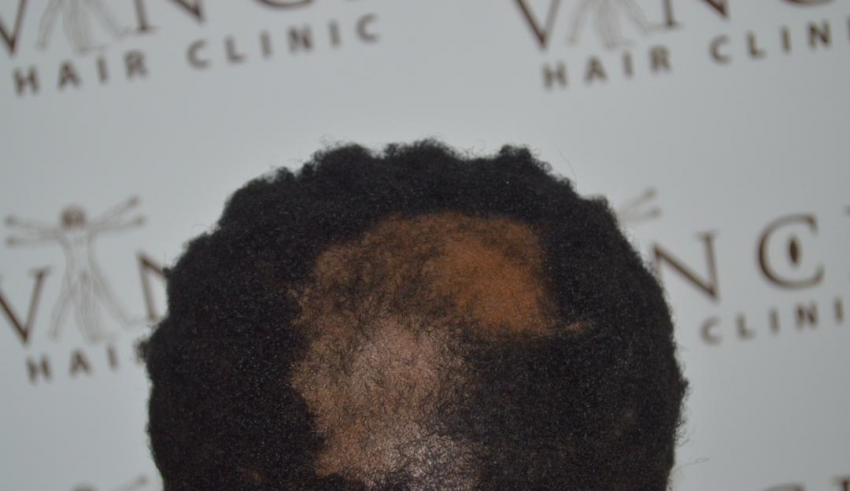
Everyone wants great hair. For many women, their hair is a crown and it stands as a symbol of beauty. They invest and look after it thoroughly. For a woman who treasures her hair, losing it can be traumatizing. Considering this, it’s no surprise that Chris Rock’s joke and Will Smith’s reaction at the 2022 Oscars became a hot subject. While onstage presenting the prize for outstanding documentary feature, Rock made a joke about Jada’s lack of hair. This has caused several reactions from fans, hair restoration experts, medical professionals, and many more, as the joke was considered insensitive to her and other survivors of alopecia.
Although alopecia is not a life-threatening illness, it can cause depression, low self-esteem, and a desire to isolate oneself. No one can comprehend the strength it takes to face the world as a person with alopecia. Viola Davis, popularly known for her award-winning performance in the series “How to get away with murder”, in an interview with Vulture, explained how she suffered from alopecia when she was 28 years old. “One morning, I awoke with a Mohawk on my head. On the top of my head, there was a big bald spot, “explained the actress.”
Davis became self-conscious as a result of her hair loss. “I’m telling you, I’ve spent my entire life not feeling at ease in my flesh. I’m just not there any longer, “she clarified. She wore wigs for years and never displayed her natural hair. “It was a crutch, not a benefit,” she explained. “I was desperate for others to believe I was attractive.”
Alopecia is a widespread problem that affects millions of people. This should not be confused with the normal daily hair loss one experiences. A person loses roughly 50 to 100 strands of hair per day on average. Alopecia denotes a greater loss of hair than would ordinarily be expected. Alopecia can occur for a variety of reasons and manifest itself in a variety of ways. It might happen all of a sudden or build up over time. Illness, poor diet and drugs are some examples of sudden onset reasons. Alopecia is a broad term that refers to hair loss. It is commonly misunderstood to be nothing more than hair loss. However, there are multiple varieties of alopecia and it is caused by distinct factors. Some common types are Androgenic alopecia (male or female pattern hair loss), alopecia areata (patchy baldness), alopecia totalis, traction alopecia, and cicatricial alopecia.
Jada has shared her experience on how she has struggled with alopecia areata. This revelation has triggered questions like: What is the cause? Which parts of the body does it affect? And many more.
Although not definitively proven, alopecia areata might have an hereditary basis, which means that patients with alopecia areata are more likely to have a genetic propensity to hair loss and it also means it is not contagious. However, like many genetically predisposed disorders, the conditions that turn the disease on or off remain unknown, meaning it cannot be cured but can be treated. While Alopecia Areata can be distressing and has no cure, it is not a life-threatening condition. Alopecia Areata is asymptomatic, with only one distinguishing symptom: hair loss. Alopecia Areata is not linked to headaches, stomach discomfort, or muscle aches. Apart from the hair, the nails can also be affected. The reason is the hair and nails are both made of keratin, a protein.
With regards to how much hair is lost for someone with alopecia areata, Alopecia areata affects most people in the form of a spot or a few areas of hair loss. It might be anywhere from a cent to a half-dollar in size. These patches usually go away with treatment, although in very few cases, they can also go away without treatment. Those spots may fade away in some people while new ones appear in others. Hair loss is a common side effect for cancer patients undergoing chemotherapy and this leads to some individuals believing Alopecia Areata is a form of cancer, but this is not the case. It is, in fact, a symptom of an autoimmune disease.
If you are experiencing thinning hair, it might not necessarily imply you have Alopecia. Certain things can be responsible for thinning hair, they are referred to as triggers. Hair loss can be a result of a trigger. Some common triggers of hair loss:
– Hormonal imbalance.
– Stress.
– Iron deficiency.
– Vitamin B12 deficiency.
– Age.
If you are finding it difficult to determine if you have alopecia or just experiencing thinning hair due to hair loss triggers, it would be better to visit a hair restoration expert or dermatologist. Understanding the ins and outs of Alopecia Areata can be tough, so we hope this article clarifies some of the most prevalent misconceptions.
Written by: Mr Ayo Otubanjo – a Hair loss Consultant, and the Regional CEO for Vinci Hair Clinic Africa, a leading Global Hair Restoration Brand.






